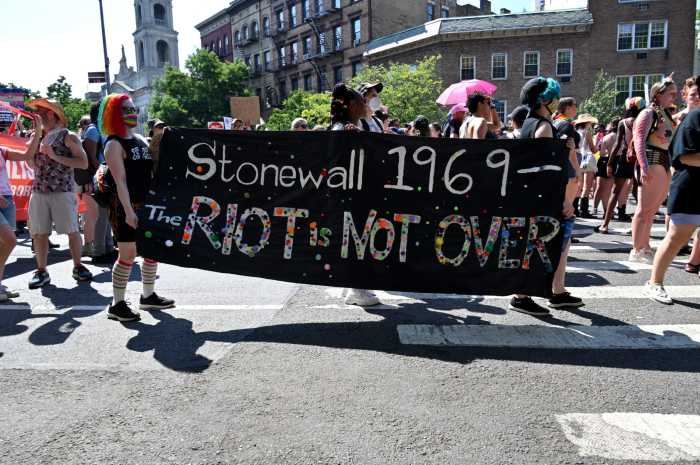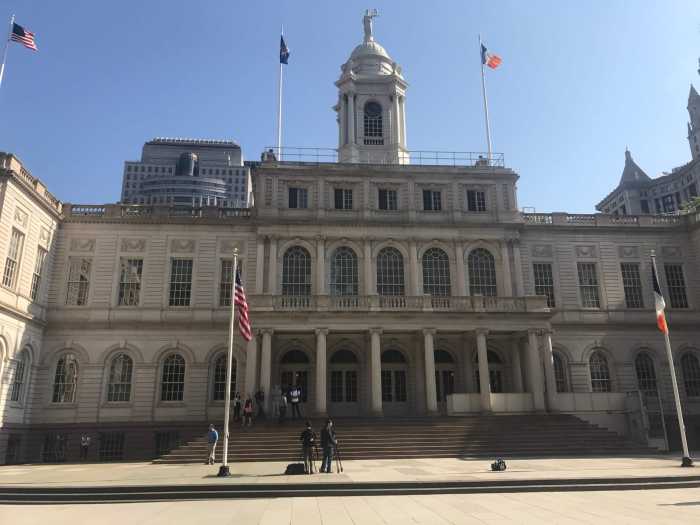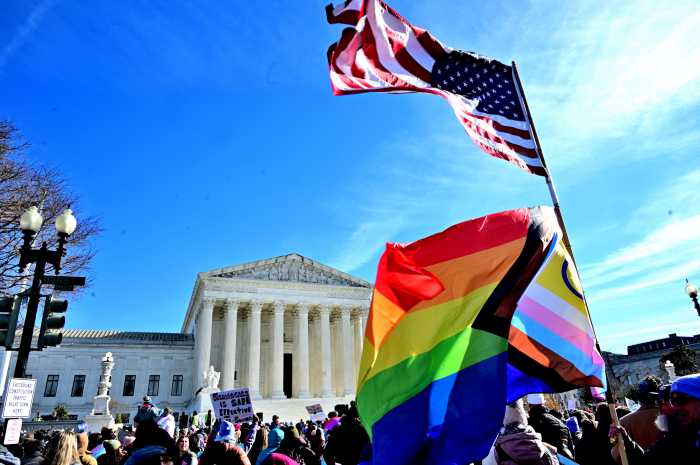Paula Ettelbrick, an attorney who brought an uncompromisingly feminist perspective to policy and social justice advocacy in leadership roles at half a dozen top LGBT organizations, died on the morning of October 7, after battling cancer for the past year. She had turned 56 just five days earlier.
Ettelbrick, who is survived by her partner Marianne Haggerty and two children, Adam and Julia, born during her earlier relationship with civil rights attorney Suzanne Goldberg, was first diagnosed with ovarian cancer in 2010 and spent the final weeks of her life at home with the aid of hospice care and family and friends.
In an advocacy career that spanned a quarter of a century, Ettelbrick worked at Lambda Legal, first as a staff attorney and later as legal director, from 1986 until 1993; at the National Center for Lesbian Rights (NCLR), as policy director, in 1993 and 1994; at the Empire State Pride Agenda, as legislative counsel, from 1994 until 1999; at the National Gay and Lesbian Task Force, as director of family policy, from 1999 until 2001; as executive director of the International Gay and Lesbian Human Rights Commission (IGLHRC) from 2003 until 2009; and since then, as the first woman to lead the Stonewall Community Foundation, a philanthropic grant-making agency that supports LGBT organizations in New York and nationwide.
Born on a US Army base in Stuttgart, Germany, in 1955, Ettelbrick graduated from Northern Illinois University in DeKalb with a degree in art history in 1978 and received her law degree from Wayne State University in Detroit in 1984.
Recalling the career that followed, Richard Burns, who stepped in as interim executive director of the Stonewall Community Foundation in the wake of Ettelbrick’s resignation in August, said, “There are countless LGBTQ citizens around the world whose lives are better today because of Paula.”
In a message distributed via email from Brazil on Friday morning, Cary Alan Johnson, who succeeded Ettelbrick at the helm of IGLHRC, wrote, “First and foremost I can say that I found her to be so genuinely, deeply, unfalteringly committed to our liberation as LGBT people. She also had a deep respect for all progressive movements and causes. Paula was one of the most sophisticated strategists I've ever met.”
In her work at IGLHRC, Ettelbrick strove with particular focus to educate American activists about the need to follow the lead of LGBTQ communities on the ground in countries where the group was seeking to provide support.
Rea Carey, executive director of the Task Force, wrote, “I will truly miss Paula — her sass, her smarts, and her smile. She was supportive of me and of other women in leadership positions. In fact, upon becoming the executive director of the Task Force, I received a note card from her along with a contribution to the Task Force in honor of women’s leadership.”
Sue Hyde, who directs the Task Force’s annual Creating Change conference, wrote that Ettelbrick’s “story is incomplete without calling forward her inspiring and visionary work as a community organizer par excellence.” It was Ettelbrick, Hyde said, who pioneered efforts to increase the representation of LGBT Americans in the US Census, at a time “when to do so was regarded as quixotic.”
Calling her “a great hero,” Ross Levi, ESPA’s executive director, noted that as the group’s general counsel, Ettelbrick took the lead in negotiating provisions of the city’s 1997 domestic partnership law with Mayor Rudy Giuliani. At the time that law was enacted, it was the most comprehensive package of such benefits in the US.
Kate Kendall, who heads up NCLR, said, “Paula was possessed of singular intelligence, integrity, ferocity, and wit. She was also unfailingly generous and open-hearted. She will be missed as a tireless advocate of the most disenfranchised.”
Kevin Cathcart, Lambda Legal’s executive director, recalled, “When Paula Ettelbrick came to Lambda Legal 25 years ago to fight for the rights of gay men and lesbians, it took not only vision and a passion for justice –– it also took courage to stand up in court and in the public eye during that earlier time in our history. Paula was fearless.”
In her work at Lambda, NCLR, the Pride Agenda, and the Task Force, Ettelbrick aggressively maintained that the fight to expand rights and protections for gay and lesbian couples and families must benefit as broad a definition of family as possible. In 1993, in a collection edited by William Rubenstein titled “Lesbian, Gay Men and the Law,” Ettelbrick wrote an essay “Since When Is Marriage a Path to Liberation?” that spelled out a feminist critique of how the institution had historically constrained the freedom and rights of women. The community, she argued, should be pressing for social and legal changes to support alternative family structures truer to the reality of queer lives.
Writing earlier this year in Washington’s Metro Weekly, Chris Geidner looked back at the “intellectual sparring” at Lambda Legal between Ettelbrick and staff attorney Evan Wolfson, who now heads up Freedom to Marry, over what posture the legal advocacy group should adopt toward what was then an incipient marriage equality movement.
A decade ago, Ettelbrick reiterated her reservations about a narrowly-focused push for marriage rights at a forum moderated by this reporter; her arguments created no small amount of consternation among the panel’s organizers from Marriage Equality New York.
In addition to her leadership roles in the community, Ettelbrick taught courses on law and sexuality at Barnard, Columbia Law School, the University of Michigan Law School, New York University School of Law, and Wayne State.
According to Stonewall Community Foundation, a memorial service for Ettelbrick will be announced at a later date.
An expanded remembrance of Ettelbrick’s life will be published in the October 12 edition of Gay City News, online at gaycitynews.com the same day.


































